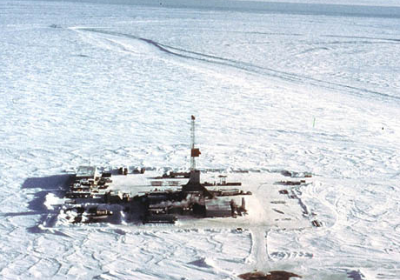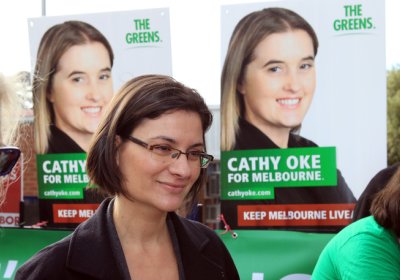As semester two begins at the University of Sydney, it’s worth reflecting on what student activists have learned so far in our campaigns this year.
We've learned that our university is being managed in line with the profits-first agenda of the 1% that run the government and the economy. We've learned that under Vice-Chancellor Michael Spence, corporate research partners and “good economic management” take priority over students, staff and society.
Analysis
If the official government line is to be believed, Australia is only a minor player when it comes to our greenhouse gas emissions.
In this view, Australia is powerless to bring about international action to cut emissions. Indeed, any such efforts are only likely to amount to economic self-sabotage.
From Laggard to Leader, the new report from research group Beyond Zero Emissions, demolishes these arguments. Far from being an inconsequential emitter, Australia’s carbon footprint is immense.
Deported Tamil Dayan Anthony's recanted claims of torture at a Sri Lankan press conference, the day after his July 25 deportation, did not assuage the fears of Australian refugee advocates that Tamils face severe danger if returned.
Despite some complications, oil giant Shell is confident it will get to work drilling for oil in the Arctic this year.
This just goes to show how things usually have a way of working out. Here we were worrying peak oil was just about upon us. But thanks to global warming caused by burning oil, the Arctic ice melt opens up more and more oil for the oil giants to burn.
In the space of a decade, Australia’s mining sector has come to dominate the country’s economic life. In June, Reserve Bank governor Glenn Stevens said mining investment is tipped to “be about as large as business investment in the rest of the private economy combined” by mid 2014.
The National Disability Insurance Scheme (NDIS) could have been a flagship policy that restored dignity to people with disabilities. Instead, ALP timidity and Coalition intransigence have left Australia with a woefully inadequate policy.
Victoria's severely stressed public housing system is under threat from the state's Liberal government, with cutbacks and sell-offs being discussed under the guise of “reform”.
And the winner is: solar power. Residents in the South Australian town of Port Augusta have voted overwhelmingly for solar over gas to replace the town’s coal-fired power stations.
The result, announced on July 22, was 4053 votes for a concentrating solar-thermal power plant, 43 for gas. In the end, 98% of voters favoured solar.
The result is testament to newly-formed local group, Repower Port Augusta, whose dedication ensured that almost one-third of residents voted, an impressive outcome for the voluntary exercise.
The antics of Gina Rinehart and Clive Palmer have served as a useful foil for Labor. They're like caricature capitalists lifted from a comic book.
Attacking them has given Prime Minister Julia Gillard and Treasurer Wayne Swan the opportunity to make up for their earlier capitulation on the Rudd mining tax with a bit of populist rhetoric, while letting BHP and Rio Tinto just get on with it.
A nuclear war using as few as 100 weapons would disrupt the global climate and agricultural production so severely that the lives of more than a billion people would be at risk, according to research released in April by International Physicians for the Prevention of Nuclear War and its Australian affiliate, the Medical Association for Prevention of War.
Australia’s spy agencies are seeking to drastically expand their powers to spy on Australian citizens online and through social media. They are also hoping to collect and keep the phone and internet data of all individuals for two years.
Some of the proposals appear to be broad enough to allow whistleblowing groups like WikiLeaks to be directly targeted.
The ALP has narrowly held on to the Victorian seat of Melbourne despite a swing to the Greens in the July 21 by-election. Greens candidate Cathy Oke won the highest primary vote, getting 36.5% to ALP candidate Jennifer Kanis’ 33.4%.
But distribution of preferences gave the ALP 52% and the Greens 48%. The Greens’ vote increased by 4.6%.
The Liberals did not run in the election, although a Liberal Party member running as an independent won 4.7% of the primary vote.
- Previous page
- Page 392
- Next page










